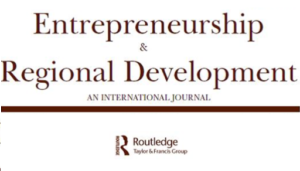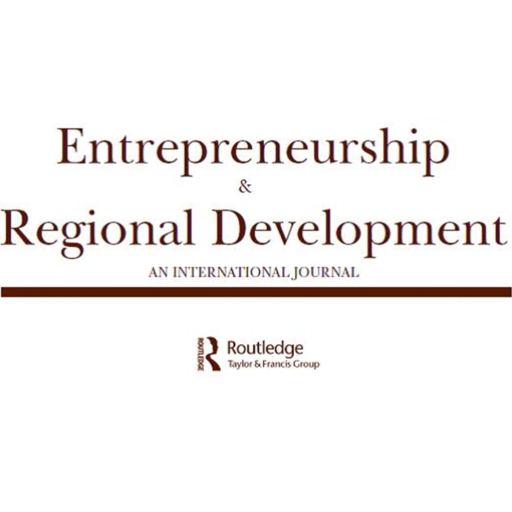Authors – E25 – Gagan Deep Sharma – Neuroentrepreneurship: an integrative review and research agenda
There is emergent literature that converges from neuroscience and entrepreneurship research, but the definitions and interlinkages are still inconsistent. We conduct a systematic literature review of 167 papers on the interface between neuroscience and entrepreneurship to address this. We observe the literature trends examining the interlinkages between neuroscience and entrepreneurial intention through six antecedents, namely – molecular neuroscience, systems neuroscience, behavioral neuroscience, cognitive neuroscience, social neuroscience, and computational neuroscience. Our findings suggest that entrepreneurial intention impacts entrepreneurial activity through five factors, including (1) opportunity recognition, (2) evaluation and risk-taking, (3) entrepreneurial cognition, (4) entrepreneurial behavior, and (5) entrepreneurial decision-making. From our discussions, the links among the neural factors affecting entrepreneurship are identified, and a research agenda highlighting a pathway for future studies is proposed.
Full text available on Taylor & Francis website: https://www.tandfonline.com/doi/full/10.1080/08985626.2021.1966106
- Can you tell us what is the origin of your paper; why have you decided to address this particular topic and what is the question you aimed to answer with your paper? Context/observed phenomenon/own practice/literature gap…
Entrepreneurship is an important subject as it helps develop creative business models without falling prey to older ideas. The very first question that I have observed over time is what brings the discovery of new business models, why some entrepreneurs are more successful than the others, what thought process underlies the entrepreneurial decisions. All these questions pertain to the black box of the human body that is the brain. So, neuroentrepreneurship is at the intersection of neuroscience and entrepreneurship.
It is interesting to understand the underlying entrepreneurial activity from the lens of neuroscience. Observation is very important to make us see the unexpected and stimulate curiosity, leading to new experiments and establishment of new paradigm, which forms the subject matter of neuroentrepreneurship.
- What are the main contributions of your paper?
Our study presents a comprehensive synthesis of missing aspects of neural compositions that could be beneficial to entrepreneurial decision-making. We suggest the role of various methodologies in conducting neuroentrepreneurship studies for investigating entrepreneurial behaviour. Neuroimaging techniques such as EEG, FMRI, etc., are crucial in mapping the functional areas of the brain while performing task-based studies and correlating with psychological assessments via questionnaires, in-depth interviews, etc.
Whether an entrepreneur is born or made can be answered by using the nuclear magnetic resonance spectroscopy method for assessing the role of genetic biomarkers and comparing it with functional brain activations.
As part of practical implications, the paper suggests introducing neural and behavioural artefacts or a target-oriented training for entrepreneurs by the use of neuroplasticity for educating entrepreneurs for better decisions.
- What was for you the main theoretical and/or methodological challenge(s) in addressing such a question?
The study underlines the relationship between neuroscience and entrepreneurship by reviewing and critiquing 167 articles about the interface between neuroscience and entrepreneurship, which is the most important part and yet challenging in nature. The study reveals that the brain’s neural underpinnings impact entrepreneurial intention through six antecedents: molecular neuroscience, systems neuroscience, behavioural neuroscience, cognitive neuroscience, social neuroscience, and computational neuroscience, to review the articles and understand their actual placement as to which antecendent is more important for synthesis of the literature. Understanding the role of cognitive factors and social psychological factors in entrepreneurial activity was another vital task of this study.
However, successful entrepreneurial decision-making rests on problem-solving capacity and opportunity recognition at the junction of temporal, neural, and cognitive levels. As researchers, it is pertinent to understand the challenges involved in such interdisciplinary studies and also, to understand the need to overcome those for evolution of the new paradigm of Neuroentrepreneurship.
- During your research journey what was your biggest surprise or the most counter intuitive result?
The role of molecular neuroscience is linked with the occupational choice of an individual, opportunity recognition and career choice. Our biggest surprise comes from the studies in molecular neuroscience. I come from management background and I was amazed to see the role of Dopamine and serotonin as they both are neurotransmitters and regulate similar functions in human body while have different effects on it. The dissociable role of dopamine receptor system is seen in learning about outcomes in value-based decision-making while serotonin plays a role in learning about bad decision outcomes and regulation of cognitive biases.
I feel that neuroscience and entrepreneurship can pave way for some great discoveries in the near future.
- What are the main implications of your work for entrepreneurs, managers or practitioners in general?
Introducing neural and behavioural artefacts for a target-oriented training for entrepreneurs by the use of neuroplasticity, which can be used both by institutions of tertiary education to educate potential entrepreneurs and by entrepreneurial training institutions that are targeting active entrepreneurs. Hence, the practical utilization of the results shall be of a global character. Therefore, the utilization of the results in terms of articles, presentations, and lecture notes can go beyond the scope of entrepreneurs and enterprises can use this research to improve entrepreneurial skillset and better opportunity recognition in the businesses that have underlying neural processes. These are also important for managers and practitioners in the field of management. At this point, we cannot neglect the biological foundation of us and what makes us Homo sapiens different from other species and the neural underpinnings helping us to take decisions.


